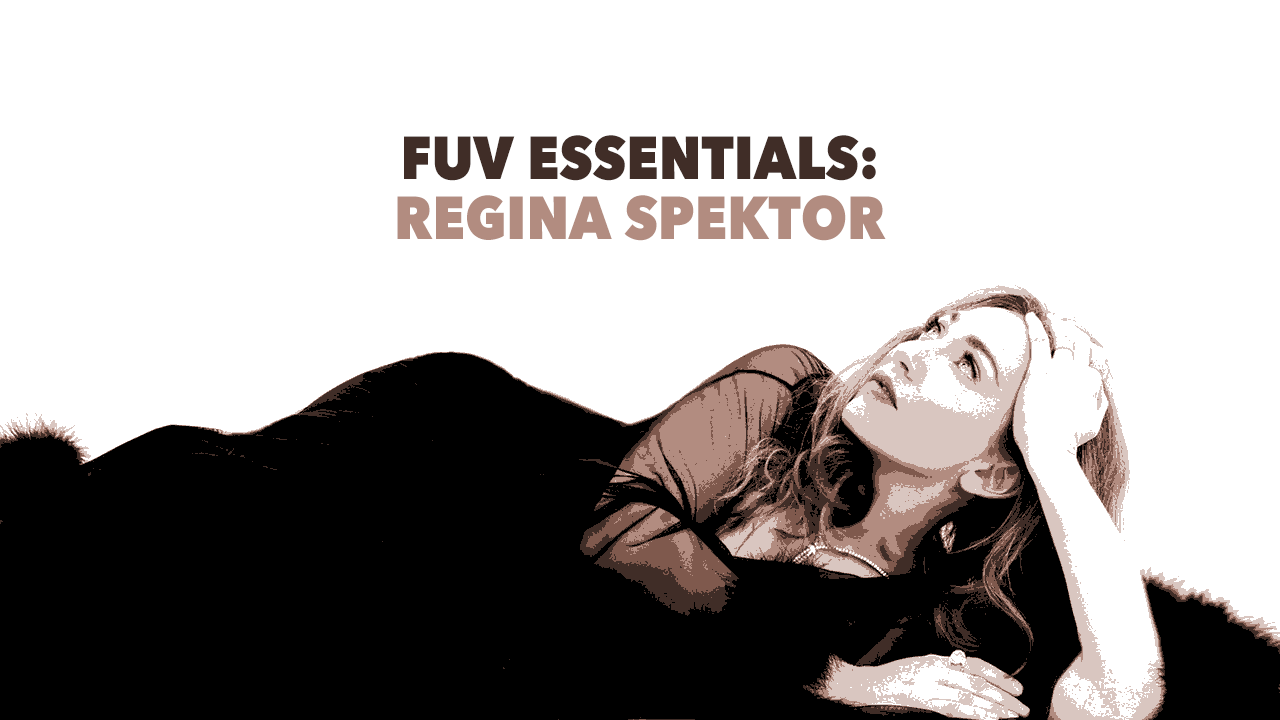Regina Spektor

Regina Spektor (original photo by Shervin Lainez, PR)
Not many New York musicians under the age of 40 have had a mayor dedicate an entire day in their honor — but Regina Spektor is no ordinary artist in this busy metropolis. Last year, ahead of Spektor's debut run of five shows on Broadway, Mayor Bill de Blasio pronounced that June 11 would be Regina Spektor Day, honoring the Bronx-raised singer, songwriter, pianist and guitarist.
Along with a ceremony at Gracie Mansion and a framed proclamation handed to a beaming Spektor, de Blasio noted her activism, her philanthropy, and notably, her inspiring backstory. A Soviet-born immigrant who arrived in New York as a child in the late Eighties with her family, Jewish refugees escaping a repressive and discriminatory government, Spektor recalled poet Emma Lazarus's "The New Colossus" in an Instagram post about the day. "Let's keep lifting our lamps 'beside the golden door,'" Spektor wrote. "welcoming next waves of immigrants to our city of immigrants!"
Spektor turns a youthful 40 on February 18, 2020 and over her seven-album career and multiple other projects, she's always been an astute magpie of a musician, dropping coolly discovered diamonds into her songs. Her shift to contemporary songwriting from classical music, as she revealed to the New York Times back in 2012, was a painful process of realizing her limitations: it could be said that discovering the music of Joni Mitchell and Tori Amos salvaged Spektor's love of the piano.
On her self-released third album (which eventually became her major label debut), 2004's Soviet Kitsch, it's easy to hear Spektor's anti-folk freak flag, waving high. But there are serious themes driving her quirky, arrhythmic songs, as on the astringent "Chemo Limo," with its furious swipe at American healthcare. As a songwriter, Spektor's gaze is unflinching and sharply attuned to the nuances of language, gestures, and isolation. Songs like "Summer in the City," from 2006's Begin to Hope, is almost painfully frank, and the sardonic "Ballad of a Politician," found on 2012's What We Saw from the Cheap Seats, has never been more apt than it is today.
As Spektor and hundreds of thousands of other immigrant writers, musicians, and artists who've settled in New York know, America has always been an exuberant cacophony of voices from all over the world. It's what makes New York, in particular, a beacon of that hope for a renewed life and what makes the five boroughs such a fecund garden of ideas. Spektor, who falls easily into a literary lineage, innately understands her home, this city, and its multicultural rhythms, and she's also intensely proud of her Russian-Jewish heritage. Her lyrics mirror what it's like to live in New York City; they unspool as poetic fragments, jolts of light and memory, like rapid-fire flashes of the world glimpsed from the grimy window of a speeding train.
“I love outsiderness. I love strangeness," she told the New Yorker in 2019. "It’s where I feel at home, and I think the world, for the most part, is very strange.”
She plays with phrasing and vocal tics, her girlishly husky voice sometimes swerving into gleeful ululations and staccato barks: "Dance Anthem of the 80s," from 2009's Far, is a jittery shuffle that pivots moment by moment, punctuated by a trilling zaghrouta, and she plaintively chirps and stutters her heartbreak in "Fidelity," from Begin to Hope.
Onstage, a slight figure behind her Steinway, she masters the hulking instrument with light, galloping arpeggios and plangent denouements. Although she began her career at tiny clubs like the late Tonic and Sidewalk Café, she swiftly graduated to venues as grand as Radio City Music Hall, London's Royal Albert Hall, and Broadway's Lunt-Fontanne Theatre, but she still maintains the charming intimacy that's so essential to her songwriting.
Her most recent studio album, 2016's Remember Us to Life, paired Spektor with a full orchestra and moody, minor key introspection. Its lead single, "Bleeding Heart," boomerangs between ballad and brash rocker (with an autobiographical video to boot), and the dire "The Trapper and the Furrier," with its shuddering, prescient lament: "What a strange, strange world we live in/Where the good are damned and the wicked forgiven."
Spektor and her husband Jack Dishel, of Only Son and formerly of Moldy Peaches, also duetted on "Call Them Brothers," found on Only Son's 2011 album Searchlight, which touches on their shared Russian roots.
A 2013 Grammy nominee for "You've Got Time," the theme song to Netflix's "Orange is the New Black" (and a "chamber version" released in 2019), more recently Spektor wrote and recorded "One Little Soldier" for the 2019 Oscar-nominated film "Bombshell," which won Best Song honors from the Guild of Music Supervisors (apparently the song missed an Oscar nomination due to a submission technicality). She explored some of her older, "lost" songs and covers via her run on Broadway last year — which may or may not see the light of day in another form down the line.
Spektor has been a frequent guest of WFUV over the last dozen years (you can find all of her past sessions below, on demand), and we're always thrilled when she sprinkles her shimmering fairy dust on our old Studio A upright piano, commanding it speak her beautiful language. She is also one of the loveliest individuals we've ever had the good fortune to meet — and while there's already been a Regina Spektor Day in New York City, and she's been inducted to the Bronx Walk of Fame, FUV joins their chorus to celebrate Spektor as one of our FUV Essentials.
More
FUV Live: Regina Spektor 2008
FUV Live: Regina Spektor 2009
FUV Live: Regina Spektor 2016
FUV Live: Regina Spektor 2019
Listen
#FUVEssentials: Regina Spektor (Spotify playlist compiled by FUV's Russ Borris)

